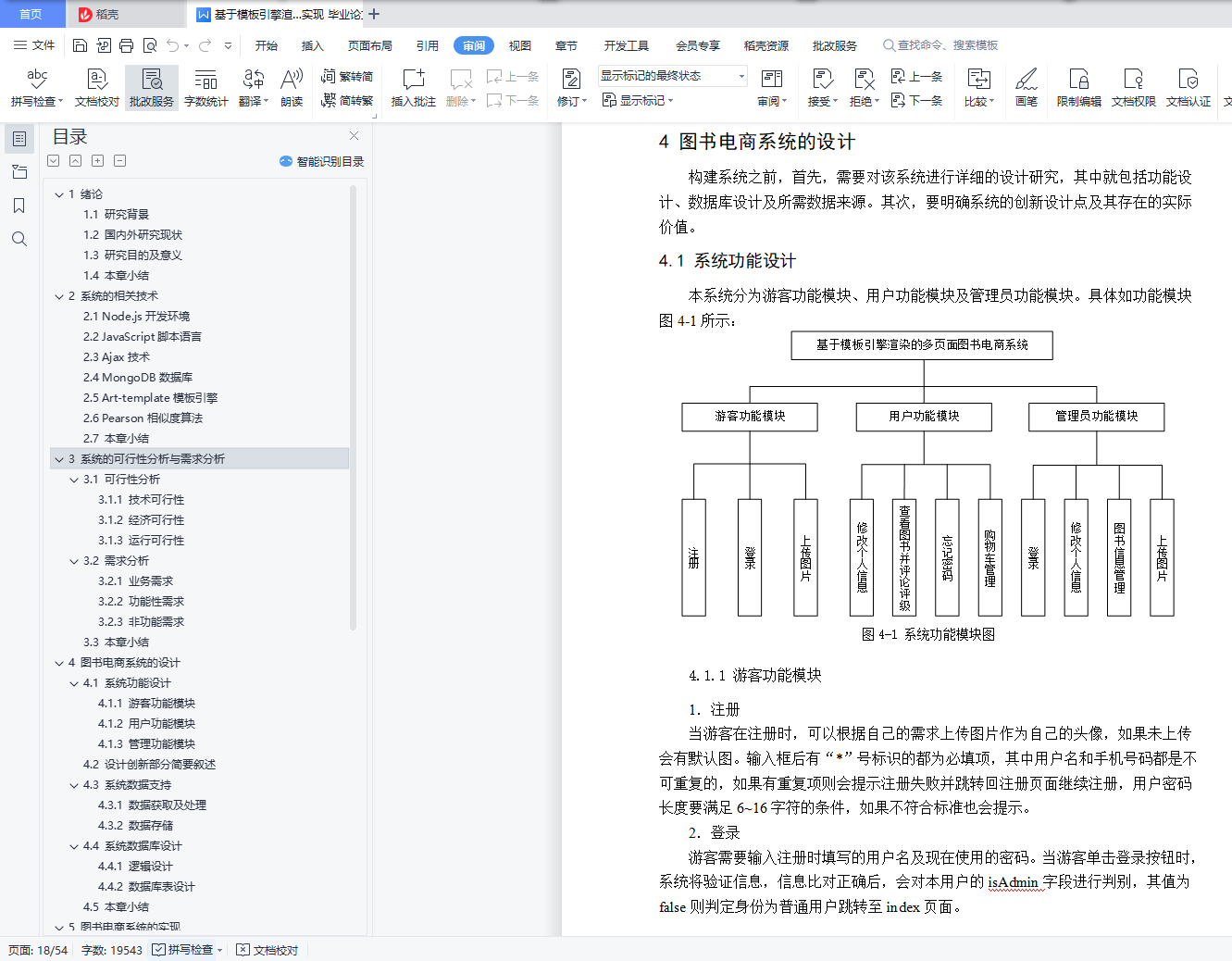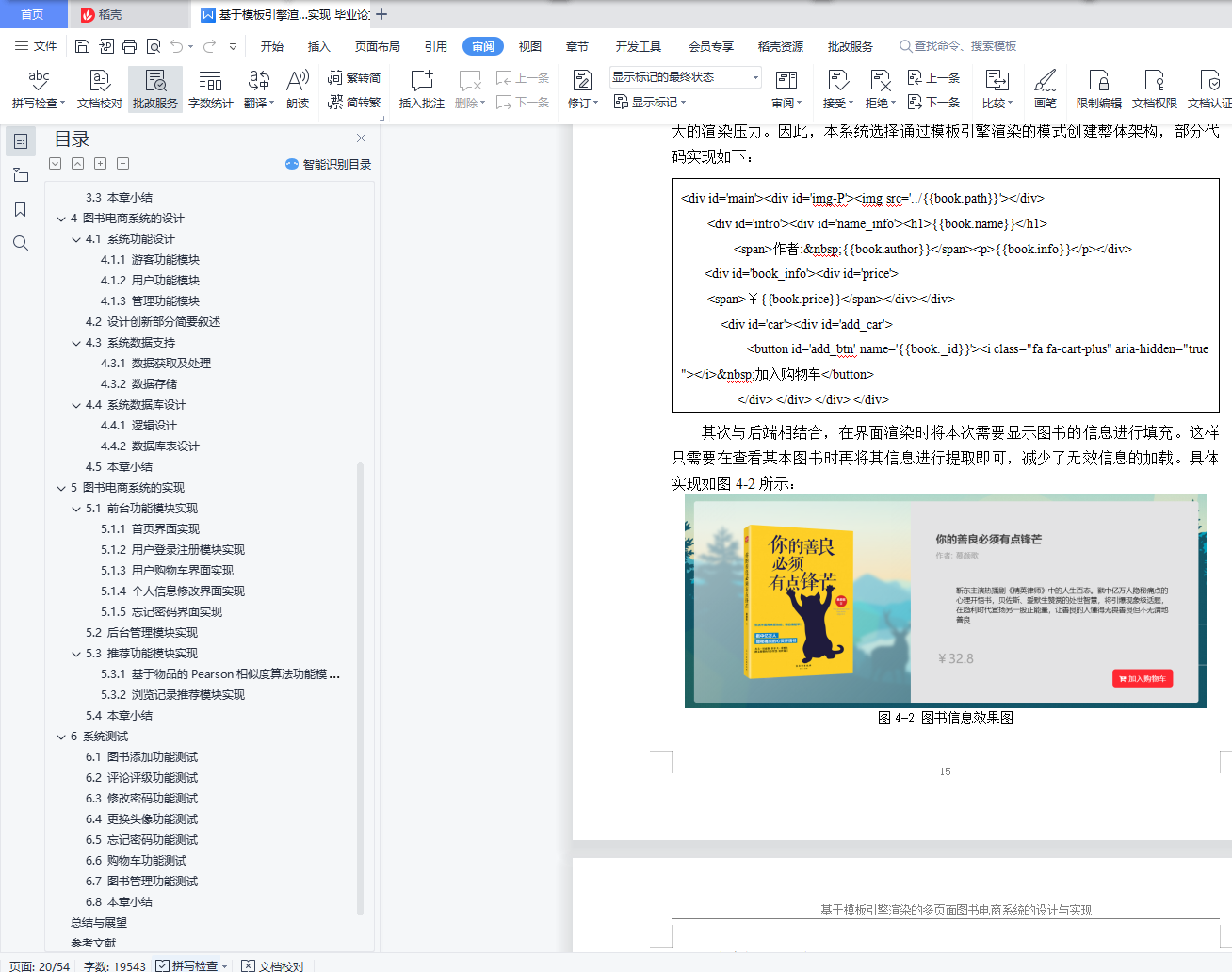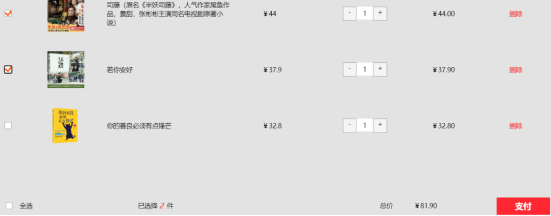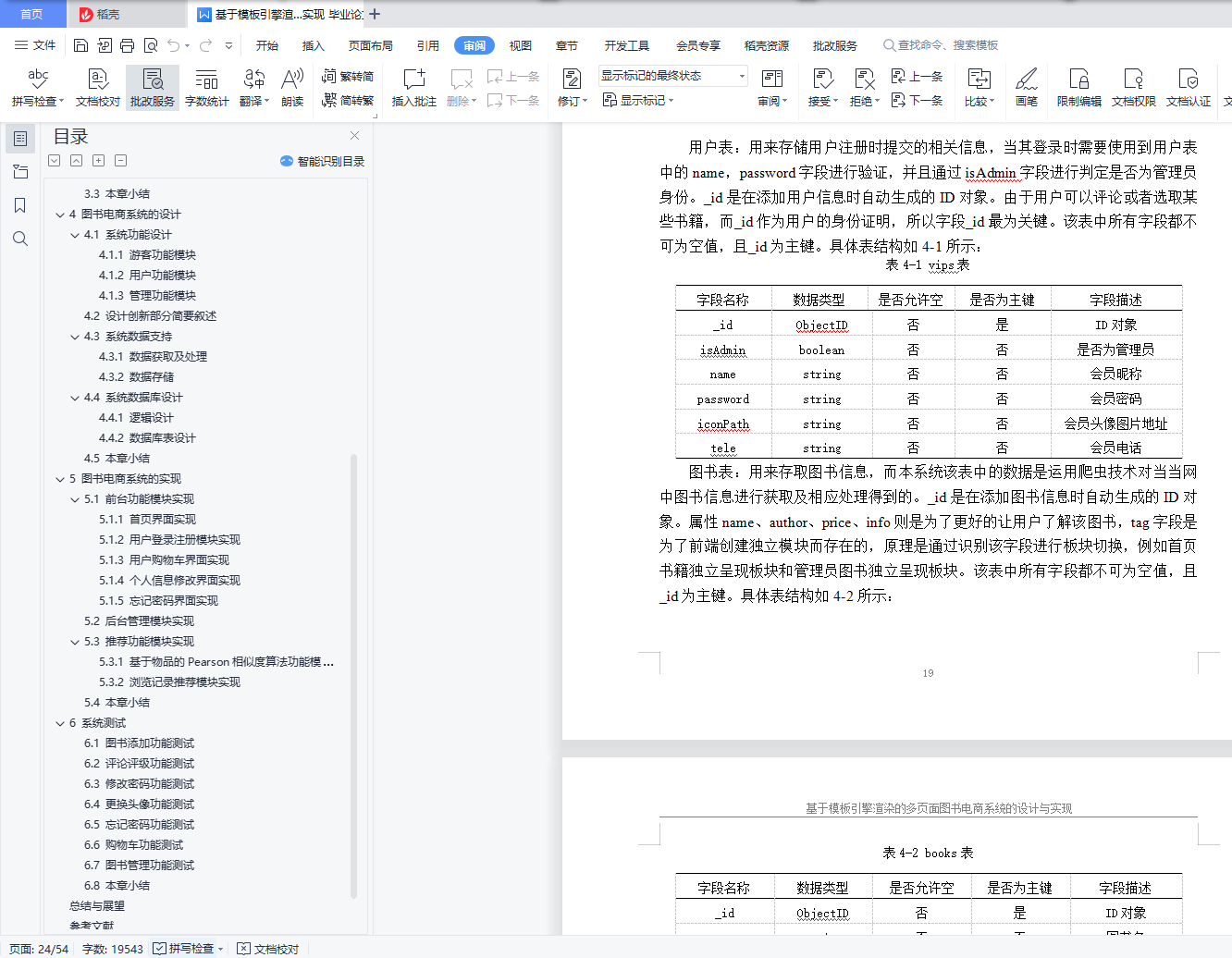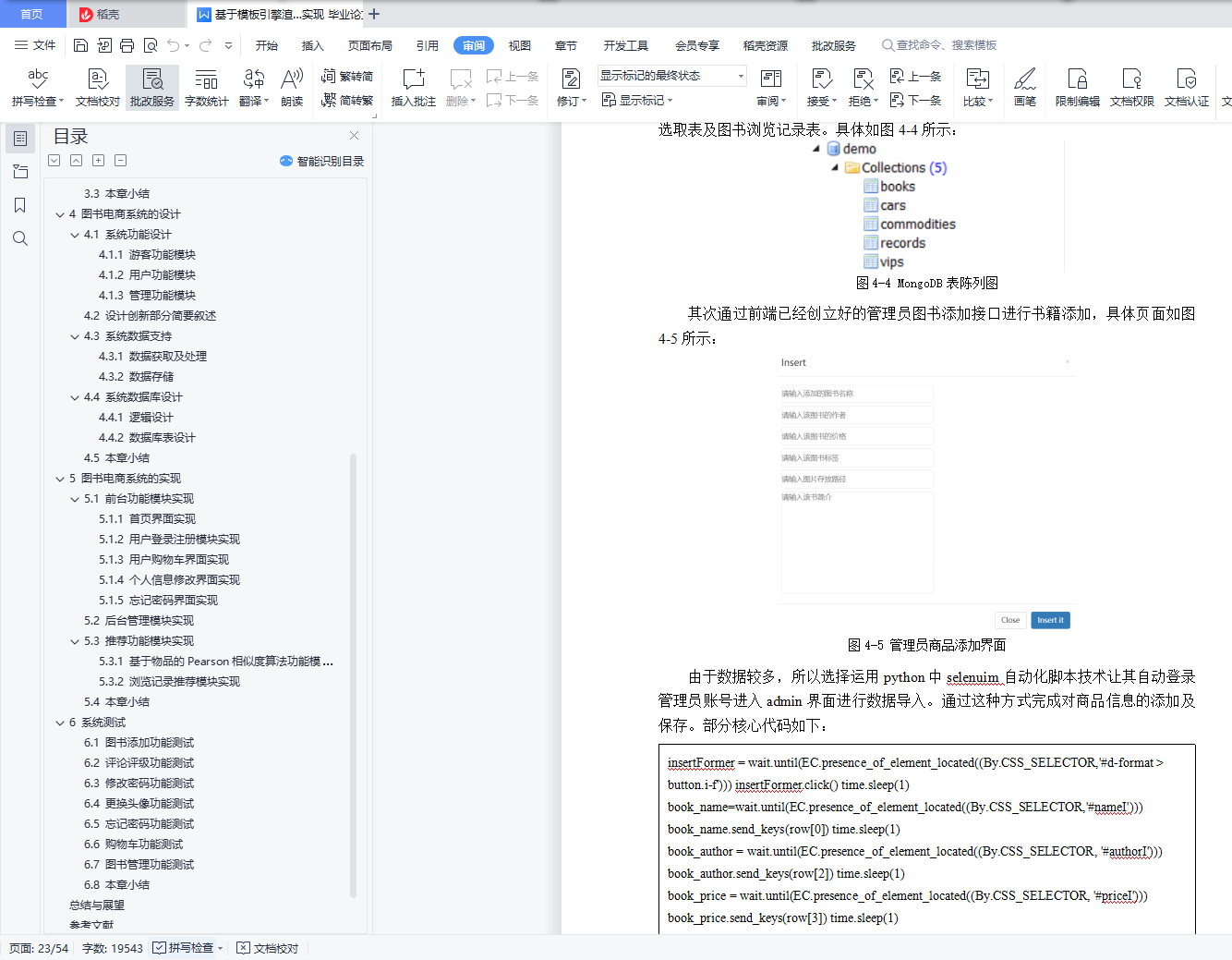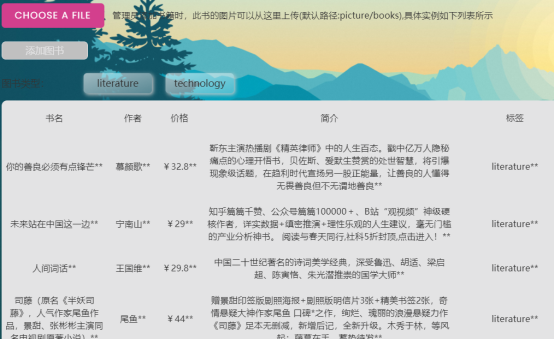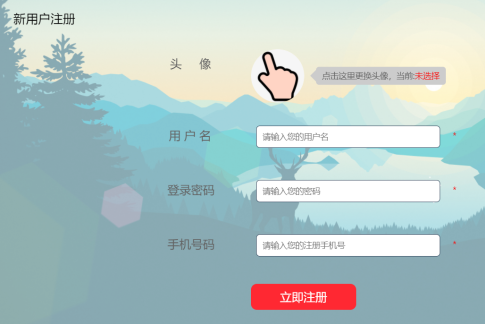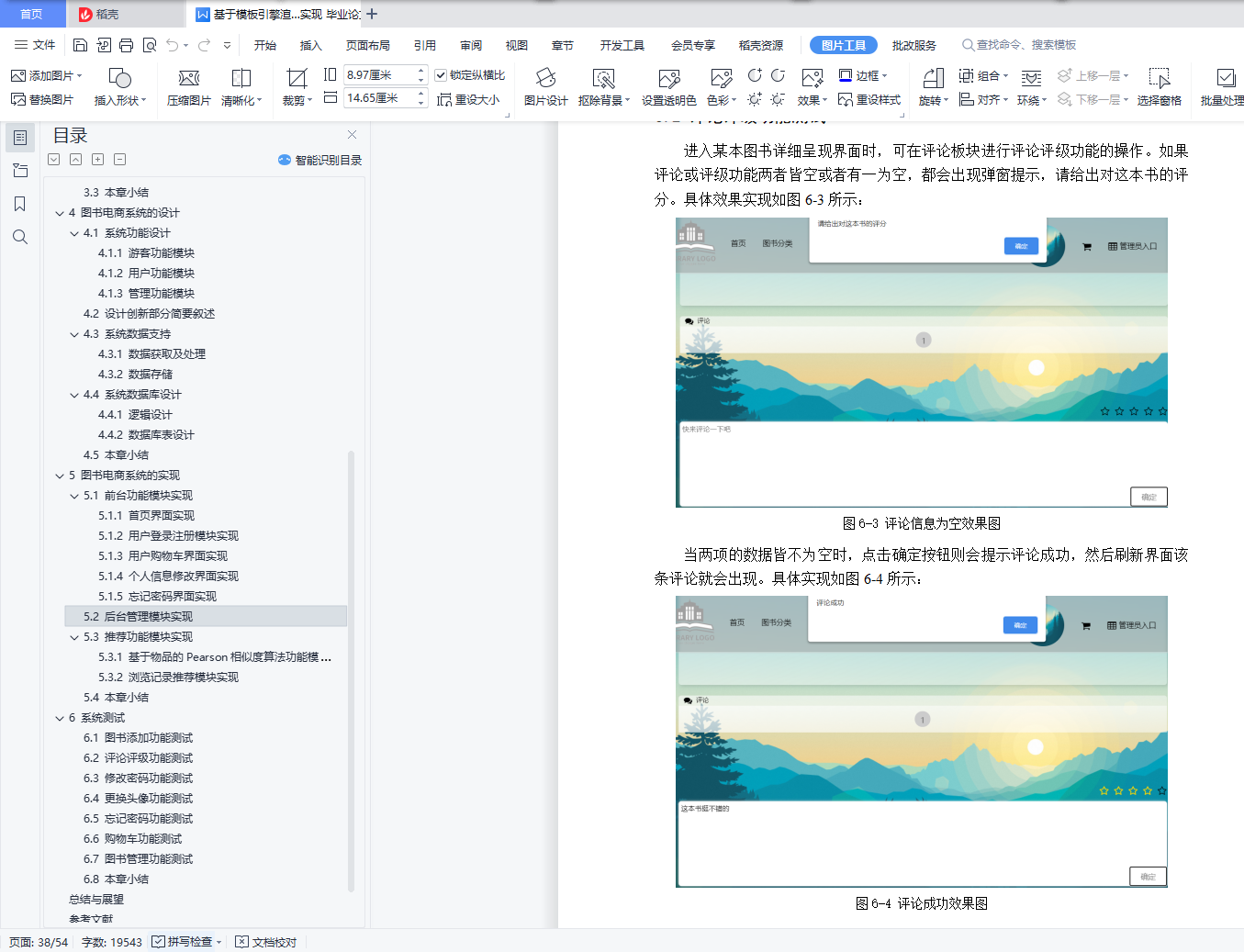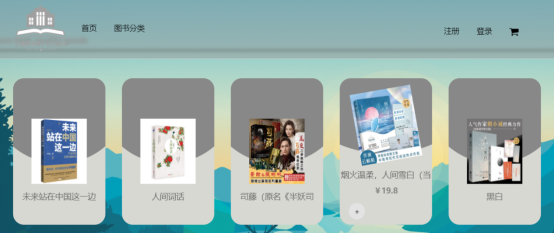摘 要
在新冠疫情的大背景下,顾客无法到实体店中去选购心仪的商品。然而,在信息化较为成熟的现今,互联网以历史潮流推动者的姿态席卷而来,各种的资源碰撞,几乎所有最新的信息都可以通过网络搜索来获得,这样一来便促进了电商的开展,也变相满足了客户足不出户也可以进行购物及货比三家的需求,所以电子商务平台开始慢慢地普及。
电子商务,顾名思义,一种全新的线上交易模式。在数字化的时代,该模式会以领导者的姿态引领全球,成为潮流销售形式。企业可以通过这种模式,缓解店面租赁的问题,大大降低前期成本输入,增加企业创收。而且网络的信息散播十分迅速,可以有效的解决线下无人问的尴尬局面。所以研究并开发一个电商系统也就具有了实际效益。
本文研究的主要内容是基于模板引擎渲染的图书电商系统。首先,运用Python中的requests、lxml第三方库对图书网站中的信息进行爬取。其次,以Node.js环境作为后端支撑,使用其Art-template第三方库满足前端的数据需求并以MongoDB作为后端的数据存储。然后运用前端相关技术构建网站框架,使用Ajax技术实现前后端数据分离,采用Python中的selenuim第三方库通过后端已建立的管理员信息管理途径将爬取数据写入数据库,作为本系统的商品供用户选择。为了解决用户选择迷茫的情况,运用Pearson相似度算法根据物品之间的联系,实现推荐功能。因此本系统不仅可以为用户提供良好的购书体验,也能缓解用户迷茫的尴尬处境。系统基本完成预期。
关键词:电子商务;模板引擎;皮尔逊相似度算法
Abstract
In the context of COVID-19, customers cannot go to physical stores to buy their favorite products. However, in today's more mature information, the Internet is sweeping in as a historical trend promoter, collision of various resources, can almost all the latest information through the Internet to search for, in this way, the development of e-commerce has been promoted, which also meets the needs of customers to shop and compare goods without leaving home. Therefore, e-commerce platform has begun to slowly popularize.
E-commerce, as the name suggests, is a brand new mode of online trading. In the digital age, the model will lead the world as a leader and become a trend sales form. Through this mode, enterprises can ease the problem of store leasing, greatly reduce the input of upfront costs, increase the income of enterprises. And the network information dissemination is very fast, can effectively solve the offline nobody asked the embarrassing situation. So the research and development of an e-commerce system also has practical benefits.
The main content of this paper is the book e-commerce system based on template engine rendering. First, we crawled the information from the book site using third party library requests, lxml in Python. Secondly, the Node.js environment is used as backend support, its Art-template third-party library is used to meet the data requirements of the front end and MongoDB is used as the data store of the back end. Then use the front-end related technology to build the framework of the website, use Ajax technology to achieve the separation of front and back end data, the selenuim third-party library in Python is used to write the crawled data to the database through the established administrator information management channel at the back end, as the system of goods for users to choose. In order to solve the confusion of users' choice, the Pearson similarity algorithm is used to realize the recommendation function according to the connection between books. Therefore, this system can not only provide users with a good experience of buying books, but also alleviate the confusion of the embarrassing situation of users. The system basically fulfilled the expectation.
Key words: E-Commerce; template engine; Pearson Similarity Algorithm;
目 录
1 绪论 1
1.1 研究背景 1
1.2 国内外研究现状 1
1.3 研究目的及意义 2
1.4 本章小结 2
2 系统的相关技术 3
2.1 Node.js开发环境 3
2.2 JavaScript脚本语言 3
2.3 Ajax技术 3
2.4 MongoDB数据库 4
2.5 Art-template模板引擎 4
2.6 Pearson相似度算法 4
2.7 本章小结 4
3 系统的可行性分析与需求分析 5
3.1 可行性分析 5
3.1.1 技术可行性 5
3.1.2 经济可行性 5
3.1.3 运行可行性 6
3.2 需求分析 6
3.2.1 业务需求 6
3.2.2 功能性需求 10
3.2.3 非功能需求 12
3.3 本章小结 12
4 图书电商系统的设计 13
4.1 系统功能设计 13
4.1.1 游客功能模块 13
4.1.2 用户功能模块 13
4.1.3 管理功能模块 14
4.2 设计创新部分简要叙述 15
4.3 系统数据支持 15
4.3.1 数据获取及处理 16
4.3.2 数据存储 17
4.4 系统数据库设计 19
4.4.1 逻辑设计 19
4.4.2 数据库表设计 19
4.5 本章小结 21
5 图书电商系统的实现 22
5.1 前台功能模块实现 22
5.1.1 首页界面实现 22
5.1.2 用户登录注册模块实现 23
5.1.3 用户购物车界面实现 24
5.1.4 个人信息修改界面实现 24
5.1.5 忘记密码界面实现 25
5.2 后台管理模块实现 26
5.3 推荐功能模块实现 27
5.3.1 基于物品的Pearson相似度算法功能模块实现 27
5.3.2 浏览记录推荐模块实现 30
5.4 本章小结 31
6 系统测试 32
6.1 图书添加功能测试 32
6.2 评论评级功能测试 33
6.3 修改密码功能测试 34
6.4 更换头像功能测试 36
6.5 忘记密码功能测试 37
6.6 购物车功能测试 39
6.7 图书管理功能测试 39
6.8 本章小结 40
总结与展望 41
参考文献 42
致谢 43
附录 44
1 绪论
本章对本论文研究的现代背景、目的及意义做了详细地阐述;介绍了电商系统在现如今信息化时代的重要地位,同时也分析了目前国内外电子商务的发展趋势及其所用技术利弊,并且根据这些分析引出本系统的构建目的及研究价值。
1.1 研究背景
随着民众的消费习惯的转变,新兴的商业交易形式,电子商务已经闯入了民众的生活。作为一种新出现的商业模式,其借助于现代信息通讯技术及互联网,使进行买卖的两方,通过网络进行联系与交流,提高了交易的自由程度,更是打破了时间的局限性[1]。
互联网的开放性催生了优势显著的电子商务系统,这种电商系统充分依赖浏览器/服务器的模式,借助互联网在贸易和商业领域传输各种电子数据和信息的活动,并以其为载体完成相关的金融、交易、商务活动与其他方面的综合性服务[2]。放眼于国内外,互联网巨头中不乏有通过电子商务起家的,诸如人尽皆知的阿里巴巴、京东、亚马逊之类的超级电商,更是发展迅速[3]。所以,电子商务正以潮流领导者的姿态进入了大家的视线。

